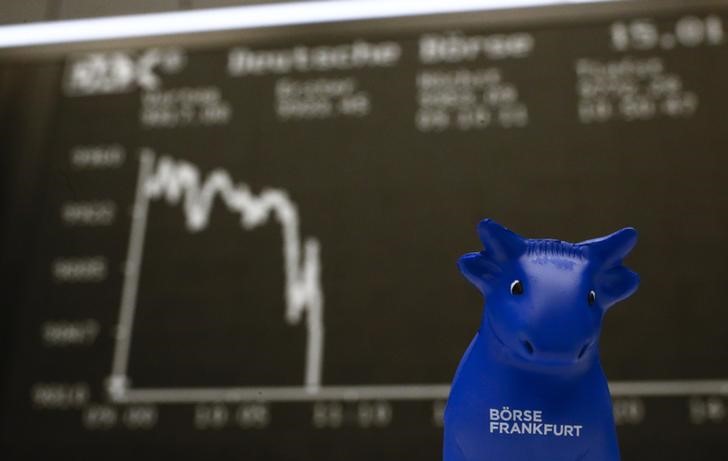By Peter Nurse
Investing.com - European stock markets traded lower Monday, with investors fretting about rising Sino-U.S. geopolitical tensions and the global economic outlook despite a healthy rebound in German factory orders.
At 04:00 ET (09:00 GMT), the DAX index in Germany traded 0.6% lower, the CAC 40 in France fell 1% and the FTSE 100 in the U.K. dropped 0.6%.
German industrial orders rose in December, increasing by 3.2% on the month in December, a substantial rebound from the upwardly revised drop of 4.4% in November.
This is the latest sign that Europe’s largest economy will get through the winter without seeing a dramatic slump.
However, this positive news comes after Friday’s strong U.S. jobs data provided more room for the Federal Reserve to continue tightening interest rates to combat inflation.
The European Central Bank also hiked interest rates last Thursday, and its policymakers were keen to point out that more was needed to tame inflation.
This hawkish talk has raised fears that growth on both sides of the Atlantic could stall this year, weighing heavily on corporate profits in the next few quarters.
Eurozone retail sales for December are due for release later in the session, and are expected to show a fall of 2.5% on the month, an annual drop of 2.7%.
Also weighing on sentiment was the news that the U.S. shot down a suspected Chinese spy balloon over the weekend, a move that was condemned by Beijing which claimed the balloon was used for meteorological purposes and had accidentally drifted into U.S. airspace.
In corporate news, Renault (EPA:RENA) and Nissan (TYO:7201) have received approval from their boards to go ahead with a restructuring of the 24-year-old alliance between the two carmakers.
Under the revamped partnership, which was previously announced last month, Renault's stake in Nissan will fall to 15% from 43%, while Nissan has agreed to invest up to 15% in Ampere, Renault's new electric vehicle division.
Renault’s stock rose 0.1% Monday, outperforming the negative wider tone.
Oil prices edged higher Monday, rebounding after last week’s hefty losses, helped by positive comments on the potential recovery in Chinese demand this year from the International Energy Agency.
IEA head Fatih Birol indicated over the weekend that early signs pointed to a stronger-than-anticipated rebound in China’s economy, likely resulting in a healthy boost to crude demand from the world’s largest importer.
Oil prices slumped last week to more than three-week lows on fears slower growth in major economies like the U.S. and Europe may limit fuel consumption in 2023.
By 04:00 ET, U.S. crude futures traded 0.6% higher at $73.83 a barrel, while the Brent contract rose 0.8% to $80.58. Both contracts dropped 3% on Friday after strong U.S. jobs data, resulting in losses of around 8% over the course of the week.
Additionally, gold futures rose 0.8% to $1,891.50/oz, while EUR/USD traded 0.1% lower at 1.0785.
